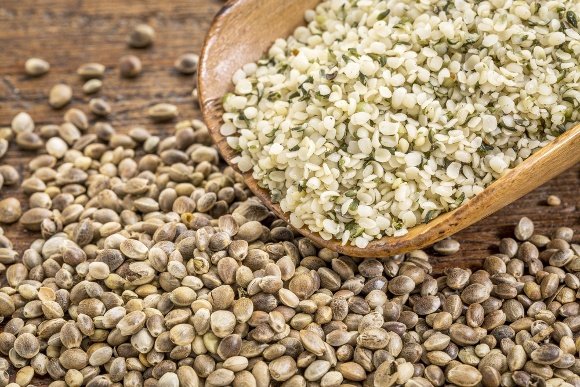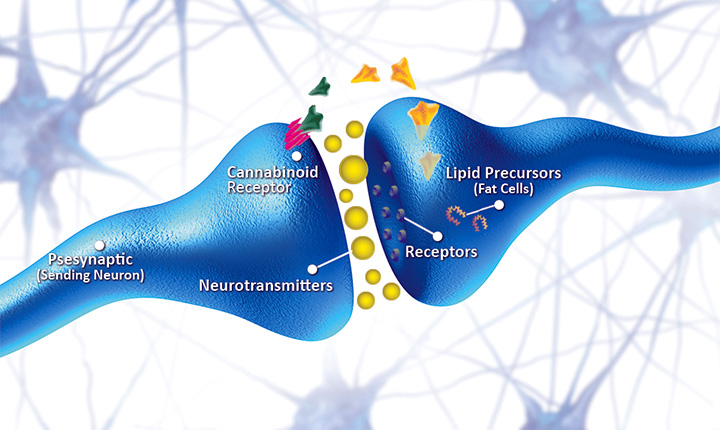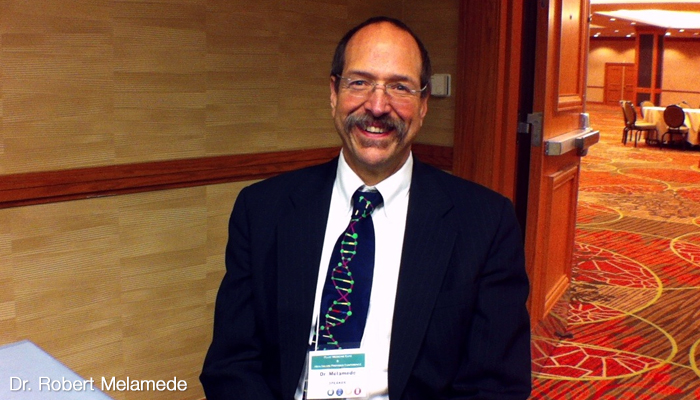Owen Smith
In a previous blog for Canlio I explained the basics of cannabinoids and the endocannabinoid system. As with any subject that is both new and complex, various theories are being explored by researchers seeking to explain and exploit cannabinoids for humanity’s benefit.
As we depart from a century of cannabinoid prohibition, there are emerging theories about how the absence of these compounds may have negatively affected human health.
Clinical Endocannabinoid Deficiency Syndrome (CEDS) was proposed by Dr. Ethan Russo in 2004. CEDS began to be explored as a potential underlying cause of an array of age-related illnesses, along with inflammatory and autoimmune diseases, depression, PTSD, bone loss, diabetes, acute or chronic pain, and cancer. It was also postulated that an overactive endocannabinoid system may be responsible for obesity (a theory which didn’t pan out).
Dr. Robert Melamede, CEO of Cannabis Science Inc., teaches a course at the University of Colorado on endocannabinoids and medical marijuana. I happened to bump into Dr. Melamede in the coffee shop at the end of my street one sunny Dec. morning in Victoria. He was visiting as a guest lecturer for Greenline Academy, who held their conference at the University of Victoria later that day. The $350 price tag deterred me from attending, but fortunately the full lecture by Dr. Melamede was available for free on Greenlines’ website. It is now only available by request.
He derives his understanding from his background in modern molecular biology and ‘far from equilibrium’ thermodynamics, which deals with natural systems that change over time, engulfed in the flux of matter and energy, amidst other systems and chemical reactions. He proposes that life is a self-organizing process that is creatively adjusting to the flow of energy it is subjected to by the environment. He explains how cannabinoids assist us from birth until death to maintain homeostasis as we undergo various perturbations in biochemical flow.
Melamede suggests that this regulatory mechanism is more involved in our daily lives than we could have imagined. Mother’s milk contains endocannabinoids that assist the child with stress, promote appetite, and protect cells from oxidation. When we eat, we create “reactive oxygen species” or free radicals to burn the food for fuel. During life, our immune system addresses potential threats by creating these free radical compounds. While protecting us, free radicals create inflammation that can cause damage to the body. It is the role of our bodies’ endocannabinoids to regulate healing processes by controlling free radicals. Dr. Melamede refers to free radicals as the friction of life and endocannabinoids as the oil.
Endocannabinoids are engaged in the balancing of forces: stimulating our appetites while protecting us against excitotoxicity and cell degradation. These balancing compounds and their corresponding biological system have existed for over 600 million years in all vertebrate species since the sea squirt. Dr. Melamede points out that our biological thermostat was set in our evolutionary past and, now that in the modern world our environment is rapidly changing, we need an agent that will facilitate this transition. Twentieth-century medicine has succeeded in extending the lifespan of the average person, and now medicines for age-related illnesses are required.
A great deal of data suggests that many problems associated with aging stem from the inability of an organism to protect itself against free-radical induced inflammation and oxidative stress. Cardiovascular, autoimmune, neurological disorders and cancers are all thought to have free radicals as a causative agent. By binding up these free radicals, antioxidants can minimize the plaque formation cycle associated with the progression of Alzheimer’s disease. Accordingly, several studies have shown that CBD blocks Alzheimer’s plaque formation by a cannabinoid-receptor-independent mechanism.
 Cannabinoids assist with the neurotransmission involved in learning. Dr. Melamede recites studies that were performed on mice in tanks of water where a platform was suspended just below the water’s surface. The mice swam around until they found the platform. Some of the mice had their cannabinoid receptors blocked and others did not. When the platform was moved, the blocked mice were incapable of leaving the original platform’s location and drowned.
Cannabinoids assist with the neurotransmission involved in learning. Dr. Melamede recites studies that were performed on mice in tanks of water where a platform was suspended just below the water’s surface. The mice swam around until they found the platform. Some of the mice had their cannabinoid receptors blocked and others did not. When the platform was moved, the blocked mice were incapable of leaving the original platform’s location and drowned.
Similarly, experiments with cannabinoid receptor blocker drugs to counteract appetite have been disastrous failures. Rimonabant was designed to block the CB1 receptor in an attempt to produce the “reverse munchies” effect. It was released in France as an appetite suppressant named Acomplia, only to be withdrawn from the market due to potentially serious side effects. It was rejected by the U.S. F.D.A. for causing anxiety, depression, and suicidal thoughts. Clinical endocannabinoid deficiency is still being considered as a possible cause for some treatment-resistant conditions, including migraine, fibromyalgia, and irritable bowel syndrome.
A study out of the University of Calgary explored PTSD among people who were exposed to the World Trade Centre attack on September 11th, 2001. They examined two groups of similar individuals, the only difference being that the members of one group were suffering from PTSD and the other were not. The researchers found that the group who were suffering from PTSD had a lower baseline level of the endocannabinoid 2-AG circulating throughout their bodies. Their findings also indicate that “reductions in [the endocannabinoid] AEA promotes retention of aversive emotional memories”.
 We make endocannabinoids out of essential fatty acids, which we have to ingest through the food that we eat. There are many sources of EFA’s, but Hemp seeds are a single source that provides the optimal balance of EFA’s for absorption by the human body. For the long period of history in which hemp seed was part of our regular diet, it would not have been sterilized of THC content as it is today. A daily bowl of hemp porridge would have provided EFA’s and low levels of phytocannabinoids.
We make endocannabinoids out of essential fatty acids, which we have to ingest through the food that we eat. There are many sources of EFA’s, but Hemp seeds are a single source that provides the optimal balance of EFA’s for absorption by the human body. For the long period of history in which hemp seed was part of our regular diet, it would not have been sterilized of THC content as it is today. A daily bowl of hemp porridge would have provided EFA’s and low levels of phytocannabinoids.
Relative to human history, modern cannabis prohibition has lasted only a fraction of our time on the planet. It has been condemned by countless authorities as a failure of social policy, an unenforceable, inhumane nightmare.
It is a terror that cannot end soon enough, our health may depend on it.
(This article previously appeared at Canlio.com)







One thought on “Are You EndoCannabinoid Deficient?”